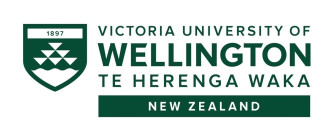International Continental Scientific Drilling Program
Human activities, especially through utilization of the hydrocarbon and mineral resources of the Earth's crust are having significant impacts on the global environment. Furthermore, with the increasing global population and the increasing trend to urbanization, notably in coastal areas around the Pacific Ocean, there is also greatly increased risk to life and property from earthquake and volcanic activity as well as from other natural hazards. Knowledge of the composition, structure and evolution of the Earth's crust and of processes which continue to modify it, is, therefore, becoming increasingly important for the wise management of the Earth's resources and environment, consistent with the principles of sustainable development. ICDP provides a set of critical downhole logging instruments for the SWAIS experiment as well as the Data Management System mDIS. A group from New Zealand recently visited the GFZ to get trained on the mDIS and to prepare the software for the field campaign.

Alfred Wegener Helmholtz-Zentrum für Polar- und Meeresforschung
The polar regions and the oceans play a central role in the global climate system. AWI explores the Arctic, Antarctic, and the seas and coastal regions of the temperate latitudes. From the atmosphere to the deep sea. Climate research for us and for future generations.
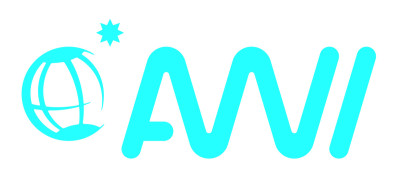
Bundesanstalt für Geowissenschaften und Rohstoffe
The Federal Institute for Geosciences and Natural Resources is the central geoscientific authority providing advice to the German Federal Government in all geo-relevant questions. It is subordinate to the Federal Ministry for Economic Affairs and Climate Action (BMWK).
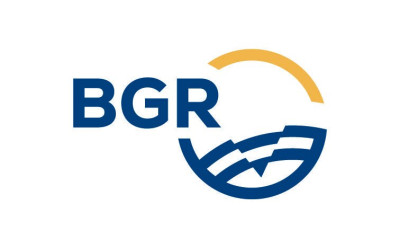
Korea Polar Research Institute
Increasing importance of the polar region from policy and business perspectives reflects the urgency of better scientific understanding of these regions. This is the reason why KOPRI, with its polar research infrastructure - two Antarctic year-round stations, one Arctic station and the IBRV Araon - strive to make progress in Arctic and Antarctic sciences.

Natural Environmental Research Council
The Natural Environment Research Council (NERC) is the driving force of investment in environmental science in the UK. It advances the frontier of environmental science by commissioning new research, infrastructure and training that delivers valuable scientific breakthroughs. NERC invests public money in world-leading science, designed to help us sustain and benefit from our natural resources, predict and respond to natural hazards and understand environmental change.

National Institute of Polar Research
National Institute of Polar Research (NIPR) is the core center for Japanese scientific research and observation of the polar regions. They engage in comprehensive research via our observation stations in the Arctic and Antarctica. They are also an inter-university research institute that provides researchers throughout Japan with infrastructure support for Arctic and Antarctic observations while simultaneously working diligently to promote polar science by soliciting collaboration research projects publicly as well as providing samples, materials, and information.

Istituto Nazionale di Geofisica e Vulcanologia
The Istituto Nazionale di Geofisica e Vulcanologia (INGV) is a research institute for geophysics and volcanology in Italy. INGV is funded by the Italian Ministry of Education, Universities and Research. Its main responsibilities within the Italian civil protection system are the maintenance and monitoring of the national networks for seismic and volcanic phenomena, together with outreach and educational activities for the Italian population. The institute employs around 2000 people distributed between the headquarters in Rome and the other sections in Milan, Bologna, Pisa, Naples, Catania and Palermo.
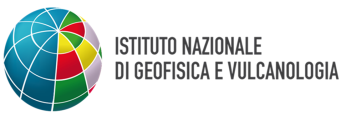
Australian and New Zealand IODP Consortium
ANZIC is the Australian and New Zealand International Ocean Discovery Program Consortium, part of an international marine research collaboration harnessing state-of-the-art scientific ocean drilling to explore the Earth under the sea. Australia and New Zealand form ANZIC, through which our two nations can access all IODP activities including shipboard and post-cruise research, participation in planning committees and groups, and visits from outstanding scientific speakers.

AuScope
AuScope is Australia’s provider of research infrastructure to the national geoscience community working on fundamental geoscience questions and grand challenges — climate change, natural resources security and natural hazards — for the common good, into the future. AuScope is funded by the Australian Government (NCRIS). You can find the AuScope team, tools, data, analytics and services at Geoscience Australia, CSIRO, state and territory geological surveys and universities nationally.

National Science Foundation
The National Science Foundation (NSF) is an independent federal agency created by the US Congress in 1950 "to promote the progress of science; to advance the national health, prosperity, and welfare; to secure the national defense..." With an annual budget of $9.5 billion (FY 2023), NSF is the funding source for approximately 25% of all federally supported basic research conducted by America's colleges and universities. In many fields such as mathematics, computer science and the social sciences, NSF is the major source of US federal backing.
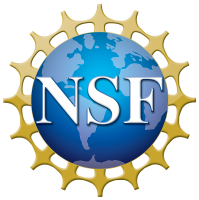
Antarctic Science Platform
The Antarctic Science Platform is a major New Zealand Government-funded research project, supporting a range of focused physical and biological science, rigorously peer-reviewed by international experts. The Platform investment recognises the urgency to understand Antarctica’s impact on the global earth system, and how this might change in a warming world. The Platform’s portfolio of long-term and short-term projects have a focus on: the stability of the West Antarctic ice sheet and its impact on global sea levels; Ross Sea Region ice, atmosphere and ocean processes in a warming world; and the vulnerability of Ross Sea Region ecosystems to environmental change.
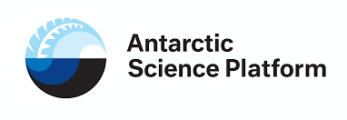
GNS Science
GNS Science draws on a heritage of over 150 years of excellence in Earth sciences. Since 1865 we have demonstrated scientific excellence in a country that straddles two tectonic plates, where earthquakes were first associated with geological faulting, and whose first Nobel Laureate, Ernest Rutherford, saw that radioactive isotopes could be used for geological dating. Today, we continue these investigations, from the atomic to the planetary scale. These activities are expressed through our Māori name, Te Pū Ao, which means “the foundation, origin, and source of the world”. GNS Science is the SWAIS2C Project Manager and will provide Project Management for overall planning and execution of on-ice and off-ice Project activities. In carrying out its Project Management role it will coordinate with the Antarctic Project Operator and the Drilling Services Provider.

Antarctica New Zealand
Antarctica New Zealand is the government agency responsible for carrying out New Zealand's activities in Antarctica, supporting world leading science and environmental protection. Antarctica New Zealand is the Antarctic Project Operator for the SWAIS2C Project and the State Operator for the purposes of the Antarctic (Environmental Protection) Act 1994 and Annex IV to the Protocol on Environmental Protection to the Antarctic Treaty. It provides Antarctic logistics, planning and operational services, including camp establishment and operation, over-ice traverse, fuel (for transport, drilling and camp operation), air support, and the support of drilling and science operations in Antarctica.

Victoria University of Wellington
Te Herenga Waka—Victoria University of Wellington is one of New Zealand’s oldest and most prestigious tertiary institutions with a proud tradition of academic excellence. Victoria University of Wellington is the Drilling Services Provider (Drilling Operator) for the SWAIS2C Project. As such, it is responsible for all aspects of the drilling and core recovery. Victoria University of Wellington will subcontract specific services for aspects of the drilling and core recovery as required and, together, they will develop the Drilling Operations and the Drilling Health and Safety plans. In planning for and carrying out the provision of Drilling services in Antarctica, the Drilling Services Provider will coordinate with the Antarctica Project Operator.
